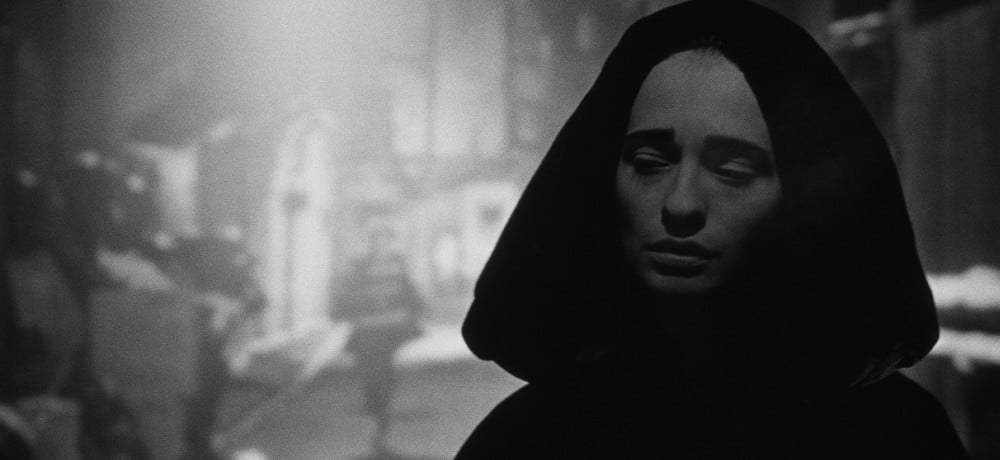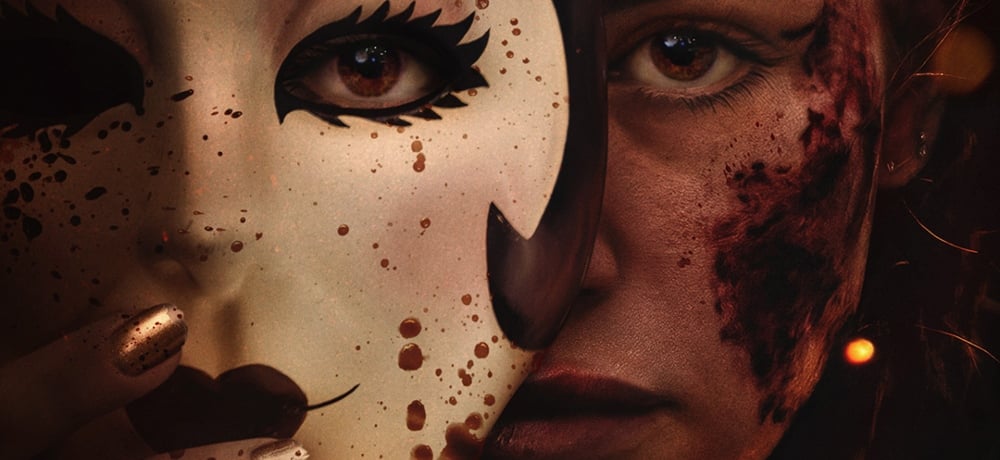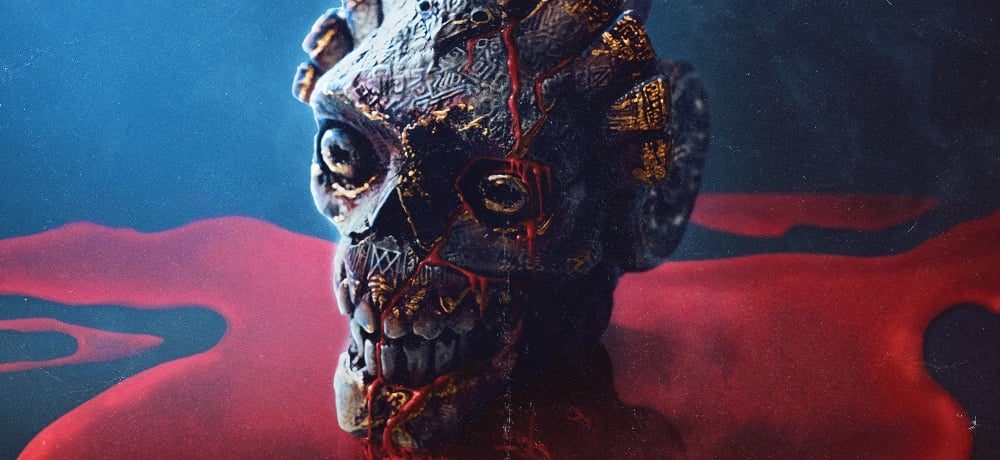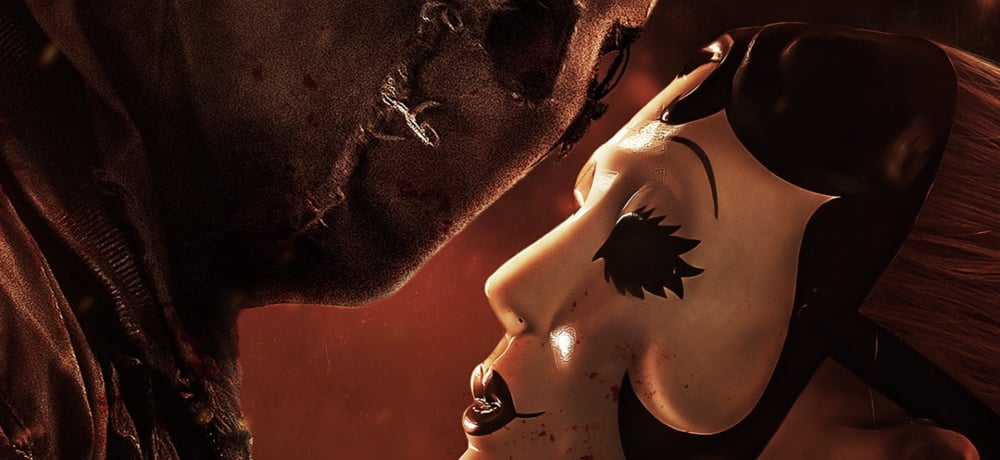





A throwback to the ambitious nature of indie horror filmmaking of the 1980s, The Void recently enjoyed its world premiere at the 2016 Fantastic Fest. The morning after the film’s debut, Daily Dead had the opportunity to sit down with co-writers/directors Jeremy Gillespie and Steven Kostanski, as well as producer Casey Walker. The trio discussed the several years it took to get their latest collaboration made, pushing the boundaries in indie horror, and more.
Great job, guys. I know this is something that’s been in the works for a while and you were able to get to this point with the support of a lot of horror folks out there.
Casey Walker: Yeah, and that came about after the script was written. We decided to do that to fund a lot of the creature stuff in the movie, just to supplement the money for the creatures, because it was so creature-intensive.
Steven Kostanski: Yeah, and it basically bought us time to actually build the creatures, too.
So, how good does it feel today that the film is finally out there, and people have seen it, and it’s had such a wild reaction, too, just because there was a lot that we didn’t know going into The Void?
Steven Kostanski: I haven’t read any reactions yet, and honestly, I don’t feel anything anymore, just because we’ve been working on this for so long.
Jeremy Gillespie: It’s been such a non-stop slog, getting this thing made and out the door, that we just want to sleep for a week at this point.
I’d love to hear about where this story came from, because it doesn’t feel very much like anything we’ve got going on in the genre right now. At the same time, it feels like a movie you’d pick up at the video store back in the ’80s, alongside the Hellraiser movies or In the Mouth of Madness or Prince of Darkness. I’m wondering if that era in horror had any kind of influence here?
Steven Kostanski: Yeah, there wasn’t any sort of direct inspiration, in terms of a movie in particular. But certainly those movies you mentioned are the movies that we all are really into and grew up on. I would say, if there is one, it would be Prince of Darkness, because we talk about that movie a lot.
Jeremy Gillespie: We really latched onto the idea of having a movie where there’s this mythology that isn’t fully explained, and the movie just commits to it. We hope that audiences get the sense that the filmmakers get the mythology, but they don’t need to spoon-feed it to them either, so you get little bits and pieces and weird ideas that sometimes don’t really feel like they connect. We wanted it to be this feeling where you leave the movie still thinking about it, and trying to piece it together afterwards. We wanted to basically make it as weird as possible, and just leave people with that tone in the film.
Steven Kostanski: Yeah, if I was in the audience for a movie, I would much rather just be thrown into it, and not know what’s going on, and try and piece it together myself. That’s just what I enjoy.
Is there an art form to that? To knowing what to tell your audiences, and what not to tell them, and holding back?
Jeremy Gillespie: Oh yeah! We discovered that, for sure, as we went along.
Steven Kostanski: It’s definitely a situation where you are riding such a fine line, in terms of how much is too much? How much is too little? I don’t know, you just have to trust your gut.
Jeremy Gillespie: Trust your gut, and commit to emotional beats that can carry people through the movie, regardless of whether the movie makes complete sense to them logically. There’s an emotional arc to the film that all the weirdness is hung off of, but I don’t feel we leave people in the dark, necessarily, at the end of the movie. It still is a satisfying conclusion, even though things are very open-ended throughout.
Steven Kostanski: Yeah. It’s a weird movie, for sure [laughs].
When you’re doing something on the independent level, which you guys have been a part of for a few years now, a lot of folks assume that, when you’re on that level, you’re just going to do the easiest story possible, with the easiest locations for people, and just try to make the minimal work, because maybe you don’t have a huge budget.
Steven Kostanski: Oh, we did the opposite! The irony is that we went into this thinking, “This is going to be our simple movie!”
Jeremy Gillespie: Originally, yeah.
Steven Kostanski: It’s contained, there are not a ton of actors, and we initially only had a couple of monsters, too.
Jeremy Gillespie: When you look at the landscape of movies in general, and independent movies—I’m not calling anybody out particularly, I can’t think of any specific examples—but you go through Netflix, and there’s just a thousand one-star horror movies, and they’re all kind of the same. Sometimes it just doesn’t really feel like people are trying to do much more than the bare minimum.
Casey Walker: And nobody’s taking any real chances, either.
Jeremy Gillespie: Yeah, there are no risks. I would much rather see people be as ambitious as possible. If you’re making a movie, how many chances do you get to do that?
Steven Kostanski: Especially with horror! If you go back to the time when we were influenced by these films, that’s all people were doing in horror, taking risks. Nothing in there was playing it safe, nothing had a sense of commercialism to it. It all felt like new art, and it was just, “Let’s create!” And it was disturbing as fuck. Now it feels like in general, horror has been whittled down into a formula, where a studio mandates that you just make things that are like whatever the last successful thing was.
And nobody sets out to make a bad movie. Everybody’s working really hard. Making a movie is so fucking hard. We broke our backs making this movie, and you just have to do that, because otherwise, who cares?
Jeremy Gillespie: It’s like you said, there are a set of rules, as to how horror movies have to work now, and if you’re making a “ghost” movie, it has to be like this or that— where’s the fun in that? It should just be, “Do whatever you want! Do weird, abstract, crazy shit!”
Casey Walker: Yeah, horror is definitely the genre that should have some kind of unexpectedness to it.
Steven Kostanski: Go as bizarre as possible, because without that, it’s like you’re missing a component to all the great horror movies, the fear of the unknown, and that’s always been the most important part of it to me.
---------
In case you missed it, check out Heather's Fantastic Fest review of The Void.